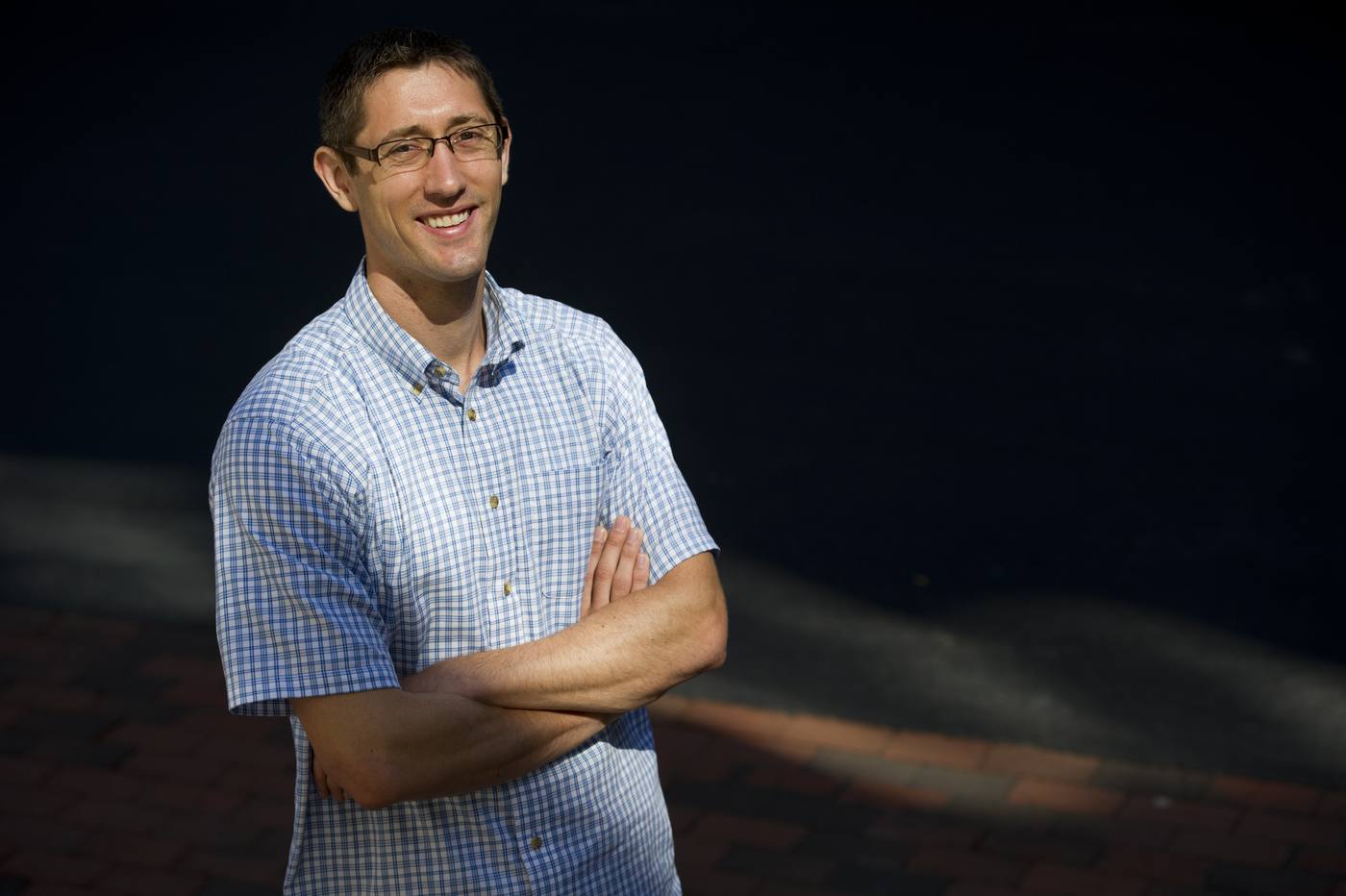Myers Receives $899K NSF grant to Optimize Thin-Walled Tube Towers

CEE Associate Professor Andrew Myers, in collaboration with Johns Hopkins and Vestas Wind Systems, was awarded an $899K NSF grant for “Optimization of Infrastructure-Scale Thin-Walled Tube Towers including Uncertainty.” Thin-walled tubes are a versatile engineering element with high potential for innovative use in a variety of civil infrastructure applications, such as wind turbine towers. However, they are susceptible to random structural imperfections during manufacturing, a phenomenon that is not yet well understood. His research will help engineers better understand these imperfections and the relationship between the structural behavior of thin-walled tubes and the manufacturing and material selection process.
The grant is a continuation of Myer’s larger body of work developing the necessary technical knowledge and policy framework to make the US a leader in onshore and offshore wind energy. The award comes through NSF’s Grant Opportunities for Academic Liaison with Industry (GOALI) program and will involve “first-of-its-kind” cooperation with a wine turbine production factory in Colorado.
_________________________
Thin-walled tube is a high-performing and efficient structural element with versatile applications in mechanical systems and civil infrastructure. Such tubes, however, can be fragile: when made of stiff materials and subjected to compression, their failure is acutely sensitive to imperfections that inevitably arise during manufacturing and to complex loading that inevitably occurs in the field. A lack of understanding of the fundamental nature of this sensitivity has been a longstanding barrier to advancement of structural engineering and manufacturing. The enormous scale of civil infrastructure and some mechanical systems present additional challenges, as tubular elements can be too large to be prototyped, iteratively designed and tested at full-scale. For these reasons, structural strength is estimated using unsatisfactory methods, either extrapolating test results with overly conservative or inaccurate simplifications of the governing mechanics or using computational methods that are unreliable. Both approaches mostly ignore the strong links between manufacturing, material selection, and structural behavior and this restricts the potential for structural innovations that are coupled with innovations in manufacturing. This Grant Opportunities for Academic Liaison with Industry (GOALI) Program award provides a path to overcome these limitations; the outcomes of this award will serve to improve mechanical system efficiencies, to foster innovations to strengthen and rebuild civil infrastructure, to revitalize domestic manufacturing, and to educate high school, undergraduate and graduate students.
Leveraging first-of-its-kind factory access, this project will yield a seminal dataset, coupling measurements of imperfections and structural behavior of thin-walled tubes, including uncertainty, with simulations across nearly two orders of magnitude of scale for a broad range of inelastic steel properties. The research combines experimental and numerical methods, including detailed measurements of the inelastic behavior of thin-walled tubes under complex loading with multiple cross-sectional actions, high-resolution measurements of geometric imperfections and residual stresses, shell finite element simulations of manufacturing and collapse behavior, and hybrid data/physics-driven random field models that are integrated into a simulation-based optimization process. The multi-scale series of physical tests provides understanding of the mechanics of thin-walled tubes in the presence of complicating and consequential phenomena: geometric imperfections, residual stresses, inelasticity, and complex loading. These tests then inform simulations that will enable stochastic optimization methods to transform design practice for civil infrastructure and mechanical systems.